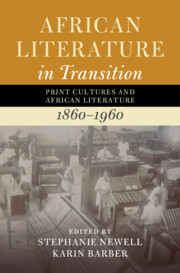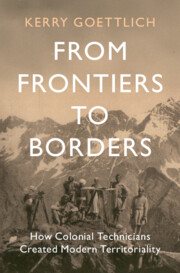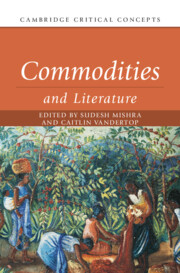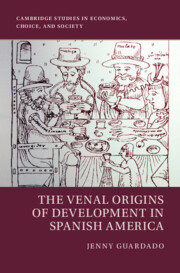Refine search
Actions for selected content:
1071 results
1 - The Problem of Colonial Borders
-
- Book:
- From Frontiers to Borders
- Published online:
- 23 October 2025
- Print publication:
- 06 November 2025, pp 1-25
-
- Chapter
- Export citation
Chapter 2 - Expansive Languages in Nineteenth-Century Central Africa
- from Part I - Producing Print
-
-
- Book:
- African Literature in Transition
- Published online:
- 23 October 2025
- Print publication:
- 06 November 2025, pp 59-76
-
- Chapter
- Export citation
1 - The Philosophy of Oil: Theorizing Development in the Gulf States
- from Part I - The Birth of the Petro-State: How Oil Reshaped the Gulf
-
- Book:
- The Gulf's Climate Reckoning
- Published online:
- 13 October 2025
- Print publication:
- 30 October 2025, pp 15-47
-
- Chapter
- Export citation

African Literature in Transition
- Print Cultures and African Literature, 1860–1960
-
- Published online:
- 23 October 2025
- Print publication:
- 06 November 2025

From Frontiers to Borders
- How Colonial Technicians Created Modern Territoriality
-
- Published online:
- 23 October 2025
- Print publication:
- 06 November 2025
Coda
-
- Book:
- American Modernism and the Cartographic Imagination
- Published online:
- 09 October 2025
- Print publication:
- 23 October 2025, pp 223-229
-
- Chapter
- Export citation

Contested Public Monuments
- Global perspectives on landscapes of memory
-
- Published online:
- 22 October 2025
- Print publication:
- 13 November 2025
-
- Element
-
- You have access
- HTML
- Export citation
Ukrainian Russophones’ Engagement with Language Education Policies
-
- Journal:
- Nationalities Papers , FirstView
- Published online by Cambridge University Press:
- 15 October 2025, pp. 1-22
-
- Article
-
- You have access
- Open access
- HTML
- Export citation

Commodities and Literature
-
- Published online:
- 14 October 2025
- Print publication:
- 09 October 2025
Traditional Institutions and Cultural Heritage Law: The Case of Benin Bronzes
- Part of
-
- Journal:
- The Journal of African History / Volume 66 / 2025
- Published online by Cambridge University Press:
- 14 October 2025, e20
-
- Article
-
- You have access
- Open access
- HTML
- Export citation
Decolonizing Archival Narratives: Exploring Digital Bias in the Catalogs of Portuguese-Colonized African Territories
-
- Journal:
- The Journal of African History / Volume 66 / 2025
- Published online by Cambridge University Press:
- 14 October 2025, e19
-
- Article
-
- You have access
- Open access
- HTML
- Export citation

The Venal Origins of Development in Spanish America
-
- Published online:
- 11 October 2025
- Print publication:
- 02 October 2025
African Correspondents in the Second World War in Burma: Reporting on Soldiers’ Experiences of Conflict, June–August 1945
-
- Journal:
- The Journal of African History / Volume 66 / 2025
- Published online by Cambridge University Press:
- 10 October 2025, e18
-
- Article
-
- You have access
- Open access
- HTML
- Export citation
Notebook
-
- Book:
- The Epistemology of the Secret
- Published online:
- 23 July 2025
- Print publication:
- 09 October 2025, pp 145-154
-
- Chapter
- Export citation

Hegel and Colonialism
-
- Published online:
- 06 October 2025
- Print publication:
- 30 November 2025
-
- Element
-
- You have access
- Open access
- HTML
- Export citation
20 - Christology and Political Theology
- from Part IIIb - Christology and Philosophical Theology
-
-
- Book:
- The Cambridge Companion to Christology
- Published online:
- 15 September 2025
- Print publication:
- 02 October 2025, pp 340-358
-
- Chapter
- Export citation
The Making of Early Colonial Dar es Salaam - Dividing Dar: Race, Space, and Colonial Construction in German Occupied Daressalam, 1850–1920 Patrick Christopher Hege. Berlin: Walter de Gruyter, 2025. xviii + Pp. 245. $83.53, hardcover (ISBN: 3111381331); $82.99, ebook (ISBN: 9783111381336).
-
- Journal:
- The Journal of African History / Volume 66 / 2025
- Published online by Cambridge University Press:
- 30 September 2025, e15
-
- Article
- Export citation
8 - Anticolonial Sociology in Latin America, 1950–1970
- from Part II - Schools of Thought
-
-
- Book:
- Anticolonialism and Social Thought
- Published online:
- 16 September 2025
- Print publication:
- 25 September 2025, pp 186-208
-
- Chapter
- Export citation
23 - Psychological Anthropology and Native American Peoples
- from Part V - Postcolonial and Political–Economic Interventions
-
-
- Book:
- The Cambridge Handbook of Psychological Anthropology
- Published online:
- 22 October 2025
- Print publication:
- 25 September 2025, pp 555-580
-
- Chapter
- Export citation
4 - Decolonization as Transformation
- from Part I - Activists, Intellectuals, and Movements
-
-
- Book:
- Anticolonialism and Social Thought
- Published online:
- 16 September 2025
- Print publication:
- 25 September 2025, pp 91-114
-
- Chapter
- Export citation
